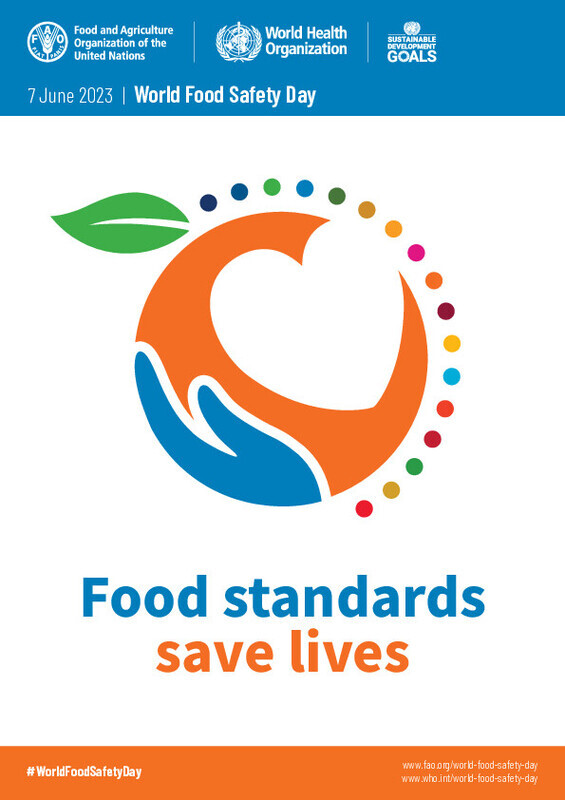World Food Day 2023
June 7, 2023

The annual World Food Safety Day highlights the importance of safe food and the 2023 theme of Food standards save lives highlights the roles of standards, certification and conformity assessment front and centre in food safety.
In highlighting World Food Safety Day, the United Nations explain why improving food safety is important:
‘Access to sufficient amounts of safe food is key to sustaining life and promoting good health. Foodborne illnesses are usually infectious or toxic in nature and often invisible to the plain eye, caused by bacteria, viruses, parasites or chemical substances entering the body through contaminated food or water.
Food safety has a critical role in assuring that food stays safe at every stage of the food chain – from production to harvest, processing, storage, distribution, all the way to preparation and consumption.
With an estimated 600 million cases of foodborne illnesses annually, unsafe food is a threat to human health and economies, disproportionally affecting vulnerable and marginalized people, especially women and children, populations affected by conflict, and migrants. An estimated 420 000 people around the world die every year after eating contaminated food and children under 5 years of age carry 40% of the foodborne disease burden, with 125 000 deaths every year.
World Food Safety Day on 7 June aims to draw attention and inspire action to help prevent, detect and manage foodborne risks, contributing to food security, human health, economic prosperity, agriculture, market access, tourism and sustainable development. The World Health Organization (WHO) and the Food and Agriculture Organization of the United Nations (FAO) jointly facilitate the observance of World Food Safety Day, in collaboration with Member States and other relevant organizations. This international day is an opportunity to strengthen efforts to ensure that the food we eat is safe, mainstream food safety in the public agenda and reduce the burden of foodborne diseases globally.’
Further explanations of the importance of food standards in food safety are given by the World Health Organisation’s Assistant Director-General, Universal Health Coverage/Healthier Populations Dr Maria Neira and the Food and Agriculture Organization of the United Nations Director FAO Food Systems and Food Safety Division, Corinna Hawkes.
The IAF and ILAC publication Accreditation Supporting safe food food and clean drinking water explores how accredited conformity assessment strives to save lives through food standards.
IIOC members offer extensive food safety services, including certification to ISO 22000 Food Safety Management Standard, as well as a variety of food safety schemes and training. Further information on how IIOC members contribute to ensuring Food standards save lives can be see here.